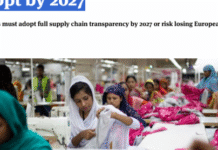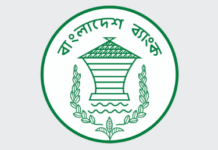
Bangladesh is set to submit its draft position paper today to the Office of the United States Trade Representative (USTR) in response to the US-proposed draft reciprocal tariff agreement, as Washington has yet to reply to Dhaka’s request for a third-round meeting, according to commerce ministry officials.
Commerce Secretary Mahbubur Rahman told The Business Standard yesterday evening that an email had been sent to the US requesting a meeting date. “However, they have yet to inform us of a date,” he said.
Regarding the draft paper, he said Bangladesh will seek a transitional period of 5 to 10 years to implement various non-trade obligations, including those related to environmental and labour rights.
He added that, in line with the US proposal, Bangladesh will also request technical assistance in several areas to help remove trade barriers and support the agreement’s implementation.
Commerce ministry officials said that to finalise Bangladesh’s draft position paper, a meeting was held yesterday afternoon with Commerce Adviser Sheikh Bashir Uddin, Law Adviser Dr Asif Nazrul, and National Security Adviser Dr Khalilur Rahman.
The finalised draft is expected to be emailed to the Office of the United States Trade Representative (USTR) this morning.
The final round of negotiations between the two sides will be based on the US-proposed draft agreement and Bangladesh’s position paper.
If both parties reach a consensus, a formal agreement will be signed, which officials hope will lead to a significant reduction in the 35% reciprocal tariff currently imposed on Bangladeshi exports to the US.
US President Donald Trump has announced that the new reciprocal tariff rate will come into effect on 1 August.
To prepare its position paper, the commerce ministry held an inter-ministerial meeting on 20 July.
A participant of the meeting, speaking to TBS on condition of anonymity, said several decisions were made, including offering certain tariff concessions to the US and increasing government-to-government (G2G) imports from the US, in an effort to reduce the reciprocal tariffs imposed on Bangladeshi exports.
The official added that Bangladesh will not agree to the non-trade conditions included in the draft agreement proposed by the US.
However, instead of outright rejecting those clauses, Bangladesh will seek a transitional period – five years for some obligations and up to ten years for others – to implement them gradually, the official said.
Asked why Bangladesh has not hired a lobbying firm like Indonesia did to negotiate a reduction in reciprocal tariffs from 32% to 19%, the official explained that the context is different.
“Indonesia’s trade volume with China is significantly lower than Bangladesh’s. As a result, the US has imposed stricter conditions on Bangladesh in the draft agreement, including a non-disclosure clause. Indonesia did not face such restrictions, which allowed it to use lobbyists – an option not currently available for Bangladesh,” he said.









